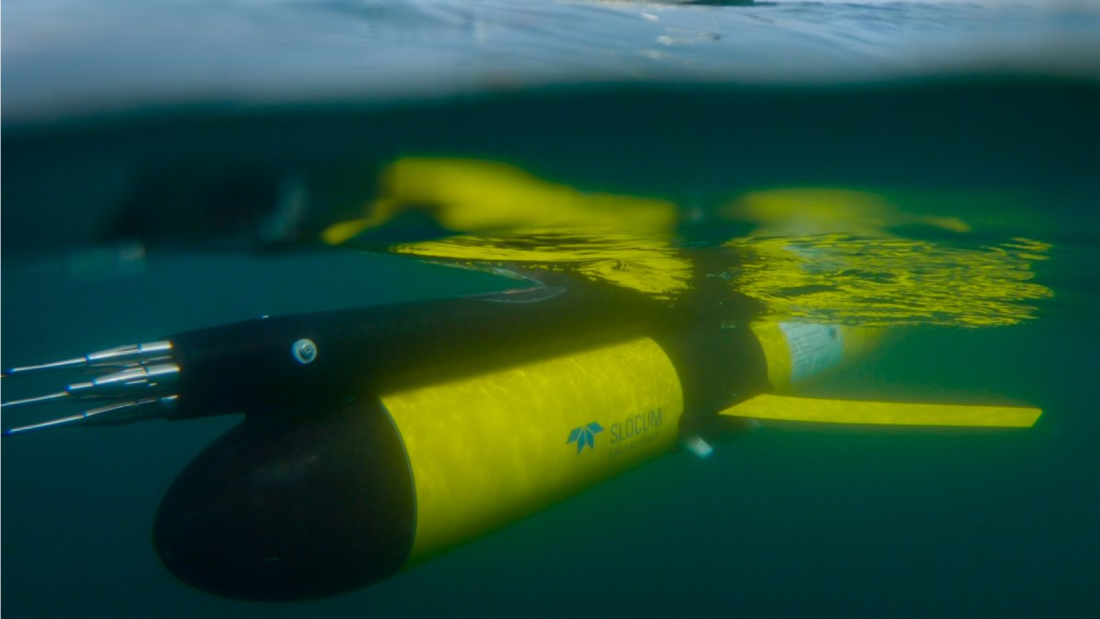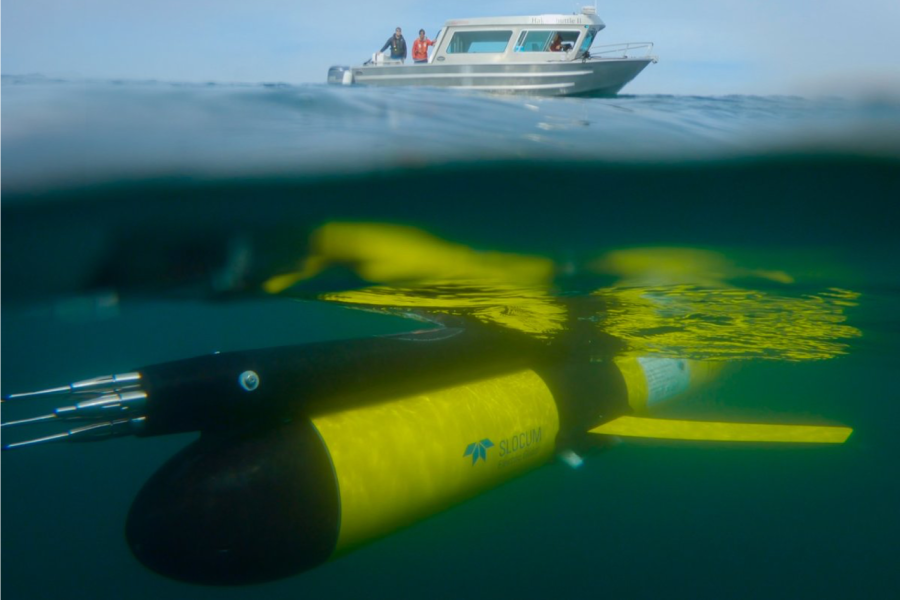Professor Stephanie Waterman of the University of British Columbia, Canada works at the forefront of a new robotic era, using remote robots for ocean observation. Professor Waterman visits Bangor University on Monday 26 June to present a public lecture on using roaming robots to better understand the ocean. All are welcome to attend the event 18.00 at Bangor University’s Eric Sunderland (Main Arts) Lecture Theatre.
The oceans remain a mystery, as foreign to us as outer space but crucially intertwined with all life on Earth, playing a pivotal role in climate regulation and food production. Much of the mystery stems from the many significant challenges associated with observing the ocean. But the robot revolution is ushering in a new era of ocean observation, with the potential to revolutionize our understanding of ocean functioning.
Understanding the ocean in new ways
Ahead of her public talk, Professor Stephanie Waterman said,
“Our recent exploits to see and understand the ocean in new ways have involved using ocean gliders, a class of robotic ocean observing platform. We’ve been using these robots to understand how whale distributions relate to the distribution of their prey, how ocean structure evolves in space and through the seasons and how this evolution impacts the base of the marine food web, as well as the weird and wonderful ways the ocean mixes in the unique Arctic Ocean environment.
“We are building a robotic ocean observing facility to allow for the long-term monitoring of ocean health in a changing climate. Together, we can speculate on the future possibilities for ocean observing enabled by gliders and future technological innovations.”
Lecture organiser, Professor Tom Rippeth of Bangor University’s School of Ocean Sciences said,
“Recent developments are said to have the potential to revolutionize our understanding of ocean functioning. This lecture from Professor Waterman, brings us right up to date with the latest developments.”
Professor Waterman’s work uses ocean observations, models and theoretical studies to better understand the physics of the ocean circulation, with a particular interest in small-scale ocean turbulence and mixing responsible for removing energy and ocean property variance from the system. A good understanding of these processes is critical to our ability to accurately represent the role of the ocean in climate models. She has participated in observational campaigns in the Atlantic, Pacific, Southern and Arctic Oceans, spending well over a hundred days at sea. Now, she and her research group engage in making state-of-the-art observations of ocean turbulence from autonomous ocean-observing platforms, collecting unique ocean turbulence datasets in the Arctic Ocean that allow for the first statistical characterizations of turbulence in this region. Her work has gained international recognition, attracting invitations to present at major meetings including the Royal Society Frontiers of Science Meeting and the Commonwealth Science Conference, as well as significant research awards including the CNC-SCOR Early Career Ocean Scientist Award, the Sloan Research Fellowship in Ocean Science, and the ARC Discovery Early Career Researcher Award.



